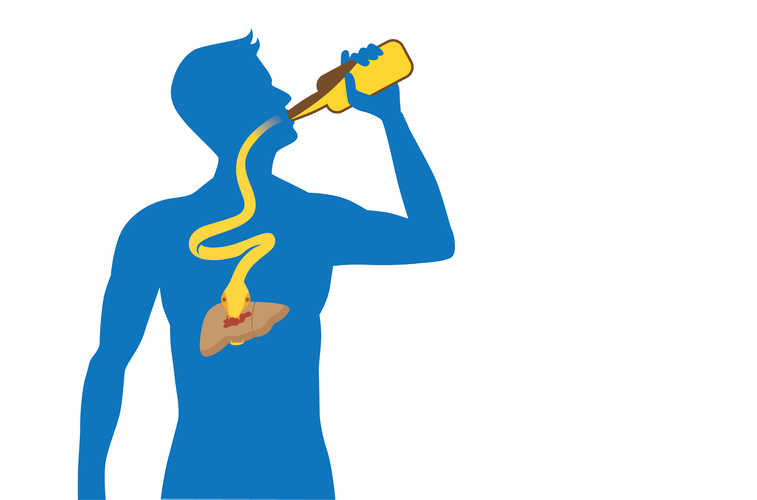It involves being curious about sobriety—usually for health and wellness reasons. It’s a shift in the way people and generations are interacting with and thinking about alcohol use. The movement refers to individuals becoming more mindful of their alcohol consumption without necessarily committing to complete abstinence. It’s about questioning the role of alcohol in one’s life and exploring a healthier relationship with drinking. Many “sober curious” people who notice troubling patterns in their alcohol use find that a few weeks or months of sobriety helps them practice more moderate and mindful drinking going forward. Posts should be related to the sober curious lifestyle, including topics like sobriety, mocktail recipes, nonalcoholic beverages, mental health, mindfulness, and wellness.

Sober curious explained: Everything you need to know
If you do decide to start drinking again, hopefully your break from drinking will help you have a healthier relationship with alcohol going forward — which is one of the goals of the sober curious movement. Heard the term “sober curious” floating around and wondering what it’s all about? It’s a growing movement reflecting a shift in how people think about their relationship with alcohol. While the sober curious movement isn’t necessarily about overcoming addiction, there is a significant overlap between the two. Some people who explore sobriety through the lens of being sober curious may realize they’ve developed unhealthy drinking habits that they want to address.

Practise drink refusal skills
Susan G. Komen also finds that alcohol consumption has been linked to an increased risk of breast cancer, as it can raise oestrogen levels and contribute to hormone-sensitive cancers. Month-long sobriety challenges like Sober October and Dry January have encouraged people to reevaluate their alcohol use. Some also try to break habits like drinking without thinking or drinking socially just because everyone else does. For budget-conscious generations, reducing drinking can free up funds for other priorities. If this all sounds appealing, you may be wondering what a sober curious lifestyle might look like, and how to get started. Let’s take a look at some steps you can take to help you make the change.
Focus on your why
According to the CDC, all forms of alcohol are linked to increased risks of certain cancers, including colorectal and breast cancers. A small study published in the British Journal of Medicine showed a remarkable reduction in cancer-related markers in participants who refrained from drinking alcohol for one month. It’s about experimenting with how your life might look without relying on alcohol to unwind, socialize, or cope with stress.
There’s nothing wrong with choosing a “sober curious” lifestyle to improve wellness. But it’s also important to recognize the difference between sobriety and the choice to go without drinking. Plenty of people can’t pick up sobriety and safely set it aside later, no matter how tough it gets.

“What we typically see is someone say, ‘Hey, I’m gonna stay completely sober for this period.’ And then when they have one drink, that’s out the window and they’re back to their old set of habits,” he explains. For this reason, it’s good to go in with a game plan, whether that’s cutting back to X number of drinks per week, drinking every other day to start or only drinking on the weekends. Then, once you feel good in that spot, you can reevaluate and go from there. Starting a sober curious journey begins with a simple decision to explore your relationship with alcohol.
If you’re considering a sober curious sober curious lifestyle but aren’t sure where to start, or if you’re struggling with alcohol use and want to make a lasting change, First City Recovery can help. Our approach to recovery is holistic, addressing not just the physical aspects of sobriety, but also the mental, emotional, and spiritual dimensions of well-being. Mindfulness can be practiced in various ways, such as through meditation, journaling, or simply taking a moment to pause and reflect before making decisions.
HALT: Hungry, Angry, Lonely, Tired – Recognizing Stressors in Recovery
Being Sober Curious means exploring sobriety and drinking less—not from a place of restriction but from a place of curiosity. It’s not about following strict rules or labeling yourself; it’s about asking questions and making intentional choices about alcohol. Research shows that women tend to have lower levels of alcohol dehydrogenase (ADH), the enzyme responsible for metabolising alcohol in the stomach. This leads Sober living house to higher concentration of alcohol entering the bloodstream, so women are more susceptible to its effects. Another study found that women have higher blood ethanol concentrations than men and are more likely to suffer alcohol-related liver diseases.
- “If you’re in any doubt, speak to a medical professional first and be honest about how much you’re drinking.”
- We recognise the continued connection of First Nations people to the land, the waterways and to community and kin, and pay respects to Elders past and present.
- You can try functional beverages (like kombucha) or drinks that maintain the same bespoke feeling as a cocktail without (or with less) alcohol.
- Whether through online communities, local support groups, or friends who share your goals, connecting with others can provide encouragement, accountability, and inspiration as you navigate your sober curious journey.
Unlike sobriety, which often implies complete abstinence and is frequently tied to addiction recovery, being sober curious is about re-evaluating the role of alcohol in one’s life. It’s about questioning why you drink, making intentional choices, and exploring alternatives that prioritise health and well-being. With the increase in options like non-alcoholic beers, mocktails, and alcohol-free bars, it’s easier than ever to participate in social events without drinking. This shift creates a more inclusive environment where people can make choices that align with their health goals without feeling out of place. A growing number of “sober curious” people are starting to take a closer look at the role alcohol plays in their lives. Sober curious simply means that you’ve chosen to avoid alcohol for personal or wellness reasons.
